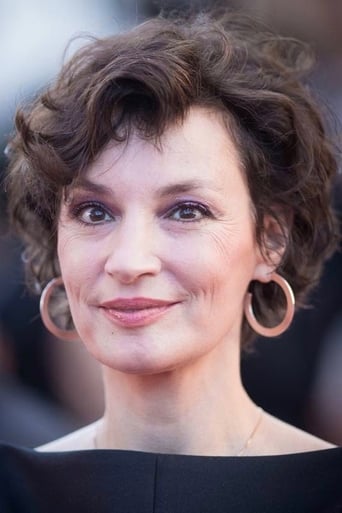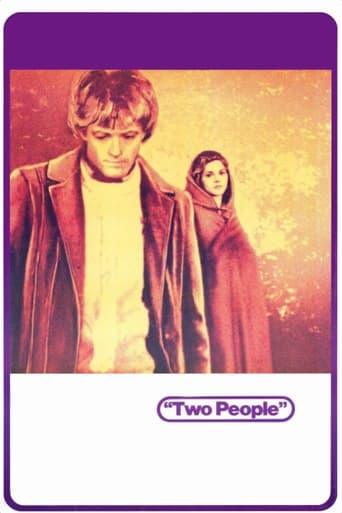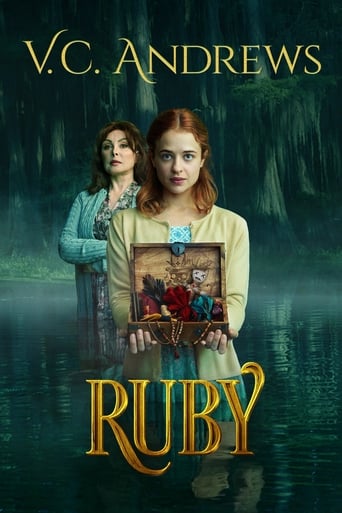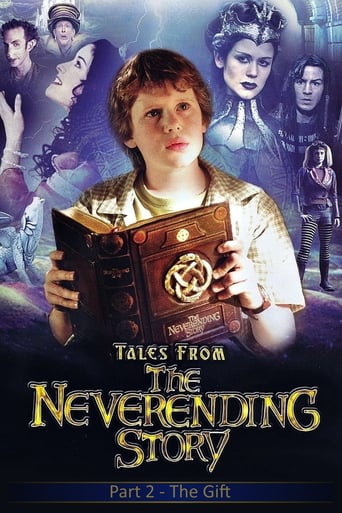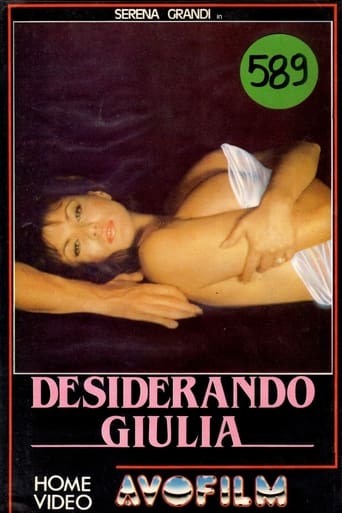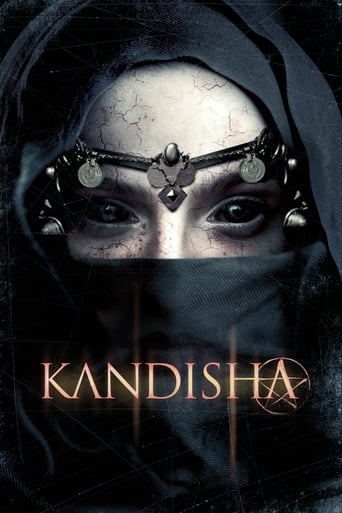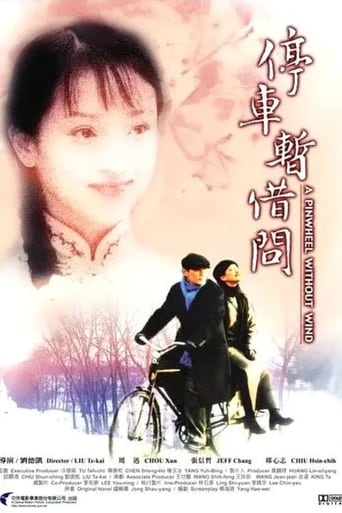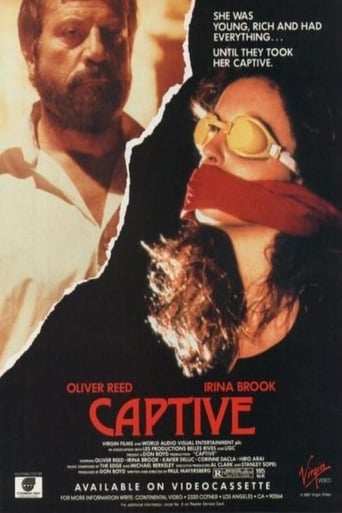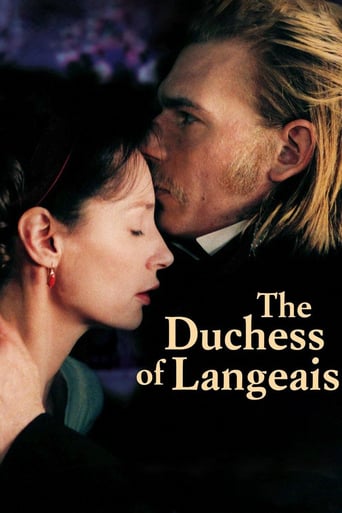
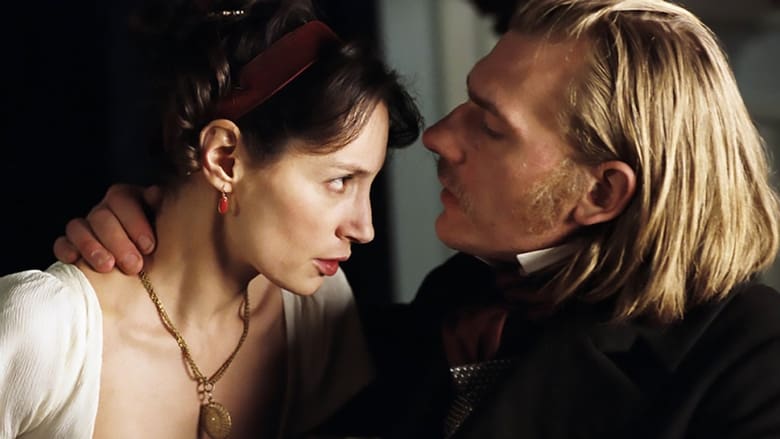
The Duchess of Langeais (2007)
General Montriveau, having returned from the Napoleonic Wars in despair, quickly becomes enamored with Duchess Langeais. Across a series of nocturnal visitations, the Duchess mercilessly toys with her hot-tempered suitor, as the machinations of a shadowy conspiracy unfold in the background.
Watch Trailer
Cast


Similar titles
Reviews
France is one of those few film making nations where the tradition of making films based on best selling as well as famous books continues to flourish as there is a huge cinema literate public which is always willing to welcome such films. This phenomenon has also a lot to do with the fact that a lot of French writers have transformed themselves into directors after having started their careers as writers. One can cite the names of writers such as Michel Houellebecq, Virginie Despentes, Yann Moix and Vincent Ravalec who have also worked behind the camera. By directing 'The Duchess of Langeais'/'Ne Touchez Pas La Hache' in 2006, it is after a long period of 41 years that French director Jacques Rivette has made a film based on a famous classic of French literature. Famous French writer of 'enlightenment period' Denis Diderot was the first person whose name was included in Rivette's Filmography as in 1965 when he chose to direct "La Religieuse" based on Diderot's famous novel about the tough live of a young nun. For the film 'The Duchess of Langeais', Jacques Rivette decided to film one of Honoré De Balzac's famous novels "La Duchesse De Langeais" which appeared in 1834 under the title 'Ne Touchez Pas La Hache". By making this film, Rivette has done an excellent job of faithfully adapting Balzac in order to give his actors Jeanne Balibar & Guillaume Depardieu a chance to render some true to life performances. There are also good performances by some big names of French cinema namely Bulle Ogier, Marc Barbé, Michel Piccoli and Barbet Schroeder. Rivette's film is about the cunning games of love and seduction which noble men and women played in olden times. Those were brilliant times when duels were fought on amazingly simple pretexts to protect one's honor in love. This is a film for those who enjoy good cinema as well as for all admirers of French culture, civilization and language.
Henri Balzac's tale of a general and a Duchess who fall in love but mostly never do anything other than pine for each other.Showing on IFC in Theaters I made it through about 40 minutes of this before I turned it off. Beautiful to look at this slow and meandering tale struck me as the sort of "art" film of my youth that was held up as the reason more people don't like "art" films. It's deep and brooding and very silly. Its more the type of thing you make fun of then enjoy.The film begins at the end when the soldier visits a cloistered nunnery and sees the Duchess one more time. It struck me as such an ending that nothing needed to follow it, but the movie cranks on from there flashing back five years to when it all started. I'm sure that had I not read the reviews that gave away little plot points I might have hung in there but the thought of being stuck for two and a half hours with such silly people was too much to bear.Clearly I didn't like it
I walked out. My date fell asleep. Badly acted, badly directed and I can't figure out how this got made. Who would fund such crap? I realize that this is a style of movie-making but it's a really bad style. No music, not transitional shots. Do we need text telling us that the next scene is "the following day"? My guess would be if the two are meeting tomorrow and he's wearing a different outfit that it indeed is THE FOLLOWING DAY! I really can't imagine what the vision of this movie was. I saw the good reviews on the poster and thought well, it must be good otherwise why would it be distributed in this country and playing at a theater that books great films? Boy was I duped. Run, do not walk, away from this one.
Jacques Rivette, the grand old late-bloomer of the French New Wave, is a sacred cow. You must either worship him or turn on him and shatter an idol. It's no use calling this new film "dull," though Armond White and Andrew Sarris have emphatically done so. That will make the cinephile fans call you stupid and impatient and without finesse or taste. It will only signal that you lacked patience. Had you endured the film's considerable longueurs with more fortitude, you would be proud and wear your multiple viewings as a banner of accomplishment, of authenticity.No, I would not want to fall into the obvious trap of calling this film "dull." But on the other hand, it's only jumping on a fashionable little bandwagon to call it a "masterpiece." It's more appropriate to describe it as a reexamination of history and culture--a film more to be studied than enjoyed. And for anybody, really, it does offer some pleasures. It's not hard to look at. Its authentic period interiors and rich costumes are beautiful and presented with an austerity than only enhances them. It has moments that bring Chereau's 'Gabrielle' to mind (though it's set later)--the recreation of a period that's so starkly emotional it almost becomes contemporary (because we subconsciously think of historical people, especially famous or rich ones, as lacking raw emotions). The crackly fires and creaky floors and flickering candles may seem clichés, but handled with a sure, unadorned European touch they seem fresh, like the Brechtian vérité of Versailles in Rossellini's stunning 1966 'La prise de pouvoir par Louis XIV.'Jeanne Balibar and Guillaume Depardieu, who play the sparring love-withholding lovers, the Duchesse Antoinette de Langeais and Colonel Armand Marquis de Montriveau, are not cool, and since they play with each other and never make love, it's all the more evident that neither of them has much presence on screen or chemistry with each other. Balibar is thin and long-necked enough to wear her Empire dresses well, but she's no beauty and has no spirit and alas, her voice is a bit whiny. Depardieu, the terribly overshadowed son of the famous father, as Armond White in an excellent if dismissive review writes is a "former dreamboat...hidden behind acne and unkempt facial hair." Supposedly playing the hero of a desert campaign, Depardieu actually limps from a car accident and despite a noble profile and good hair has a face that when seen dead-on seems to disintegrate as from depression or drug abuse or both. That may do for the shattered war hero look, but there isn't much about Guillaume that suggests officer material.These ill-fitted, unmagical actors are brought together to play two neurotic characters, who, in an unusually focused and formally scripted work for this director, seem like the characters in Catherine Breillat's 'The Last Mistress' (2007), trying to live the lives of eighteenth-century rakes but overcome by nineteenth-century romantic emotions, and in this case a kind of Victorian guilt alternative with the temptation to commit perversion. The colonel has the duchess kidnapped and threatens to brand her. Earlier she's said he's looking at her at a ball as if he had an ax in his hand; the French title is 'Ne touchez pas la hache,' "Don't touch the ax," referring to a superstition about the ax that killed Charles I of England.She welcomes being branded. So of course he has the hot iron taken away. Isn't this the essence of S&M--to provide the most exquisite torment by withholding torment? Armond White says "Rivette sticks to the melodrama of manners, as if observing a war of social proprieties. Each rendezvous--or missed meeting--of the would-be lovers becomes a game of one-upsmanship. These people are trapped in conventions that they adhere to more than anybody else. They're tragic 19th-century fools--figures from an unfamiliar age who test a modern audience's patience." They do that no doubt, but Rivette deliberately exaggerates the constricting conventions to go beyond naturalism or historical accuracy and make this almost a conceptual piece--and hence not really "Masterpiece Theater" at all (despite Nathan Lee) but something different and more intense and more like Gabrielle--but without Gabrielle's excitement.And without context. That excitement is partly achieved through great acting and much better casting (Isabelle Huppert and Pascal Greggory, who have a kind of high-octane negative chemistry), but also through a vivid conveyed sense of a surrounding society that is shocked, even as it looks the other way. In The Duchess of Langeais we see only a few relatives, soldiers, and pals, mere appendages, so that despite all the adherence to constricting conventions, the protagonists seem isolated, and free, living in their own invented hell. That's much more a modern idea. Beware a historical film that feels authentic; it's probably even more anachronistic than a conventional one. Despite the duchess' constant attendance at balls, and a couple of dance scenes with nice music, there's not enough sense of a larger society with rules.Though there are plenty of cards and letters (most of the latter unopened however) and a few moments of voice-over, this is one of those times where a film from a book (or in this case a Balzac novella) needs more verbiage to make sense out of what's going on. You can't say nothing happens--besides the kidnapping there's an attempt to storm a convent. But the story is all about withholding--and we need to know its inner repercussions. Despite Rivette's self control and ability to tease, this is a literary adaptation that doesn't quite work cinematically. The duchess's withholding is due to the fact that, though she is enamored of Armond, or of his love for her, she considers it undignified of her to become his mistress. We need to be told more about the rule book she's following; you can't have a real sense of passion till you know the rules are that it makes people want to break.FSLC Film Comment Selects Feb. 2008; IFC release.


